Talk Justice: Episode 96
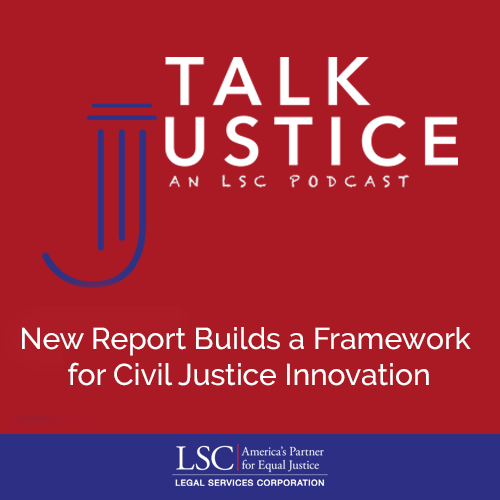
New Report Builds a Framework for Civil Justice Innovation
Legal scholars discuss the American Academy of Arts & Sciences’ new report, “Achieving Civil Justice: A Framework for Collaboration,” on Talk Justice. Since 2014, the Academy’s Making Justice Accessible project. has highlighted the scale of the civil justice gap by recognizing its social, economic and human costs, and calling for improved data collection. The project is also looking ahead to set standards for civil justice and to ensure all Americans have meaningful access to justice.
Guest Speakers
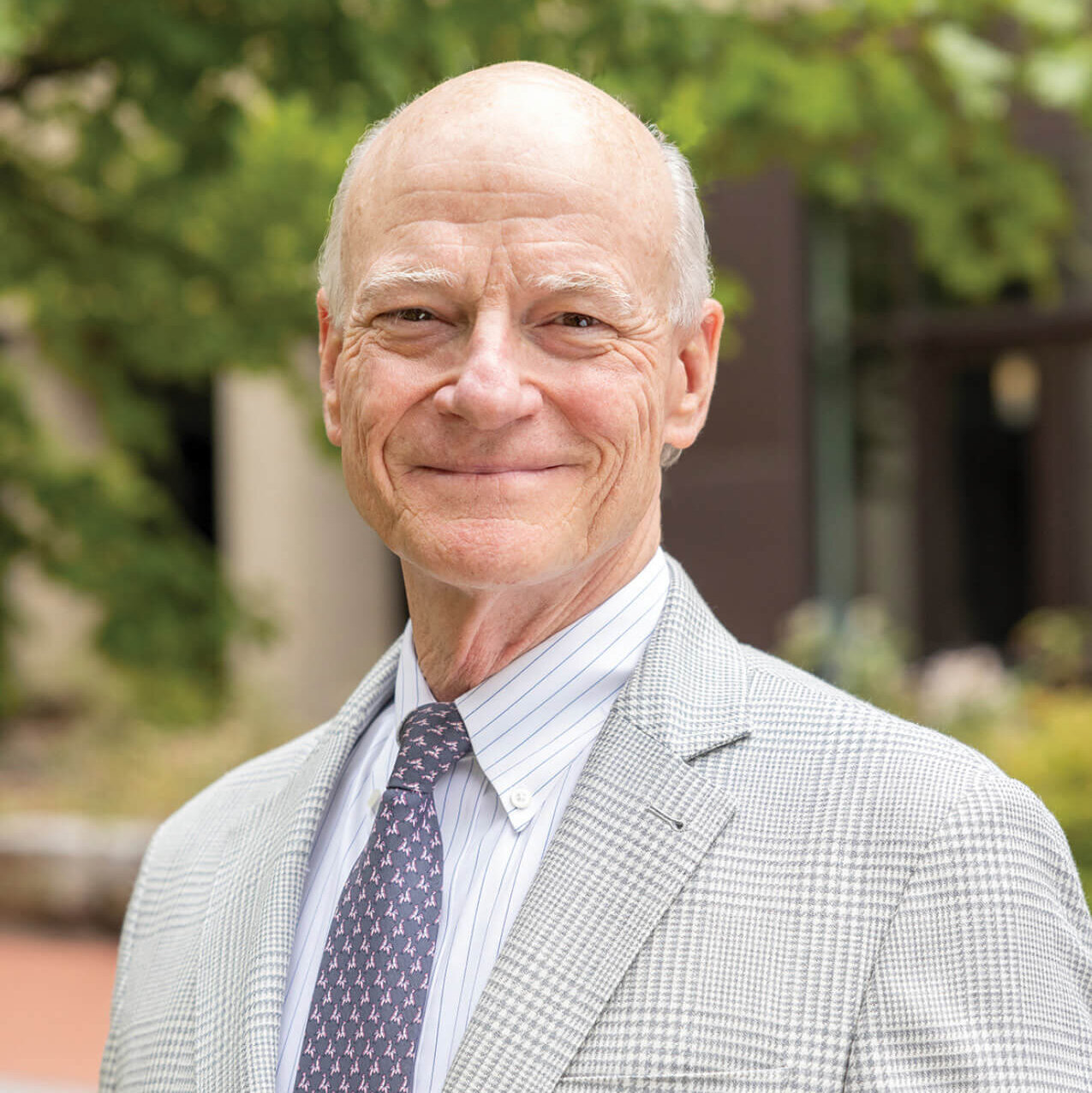
William C. Hubbard is Dean and Professor of Law at the University of South Carolina Rice School of Law. He previously served as president of the American Bar Association, American Bar Foundation, and American Bar Endowment. He is co-founder and chair of the board of the World Justice Project. He is a member of the American Academy of Arts and Sciences and the Council of the American Law Institute (emeritus). He is an honorary Master of the Bench of Middle Temple in London.
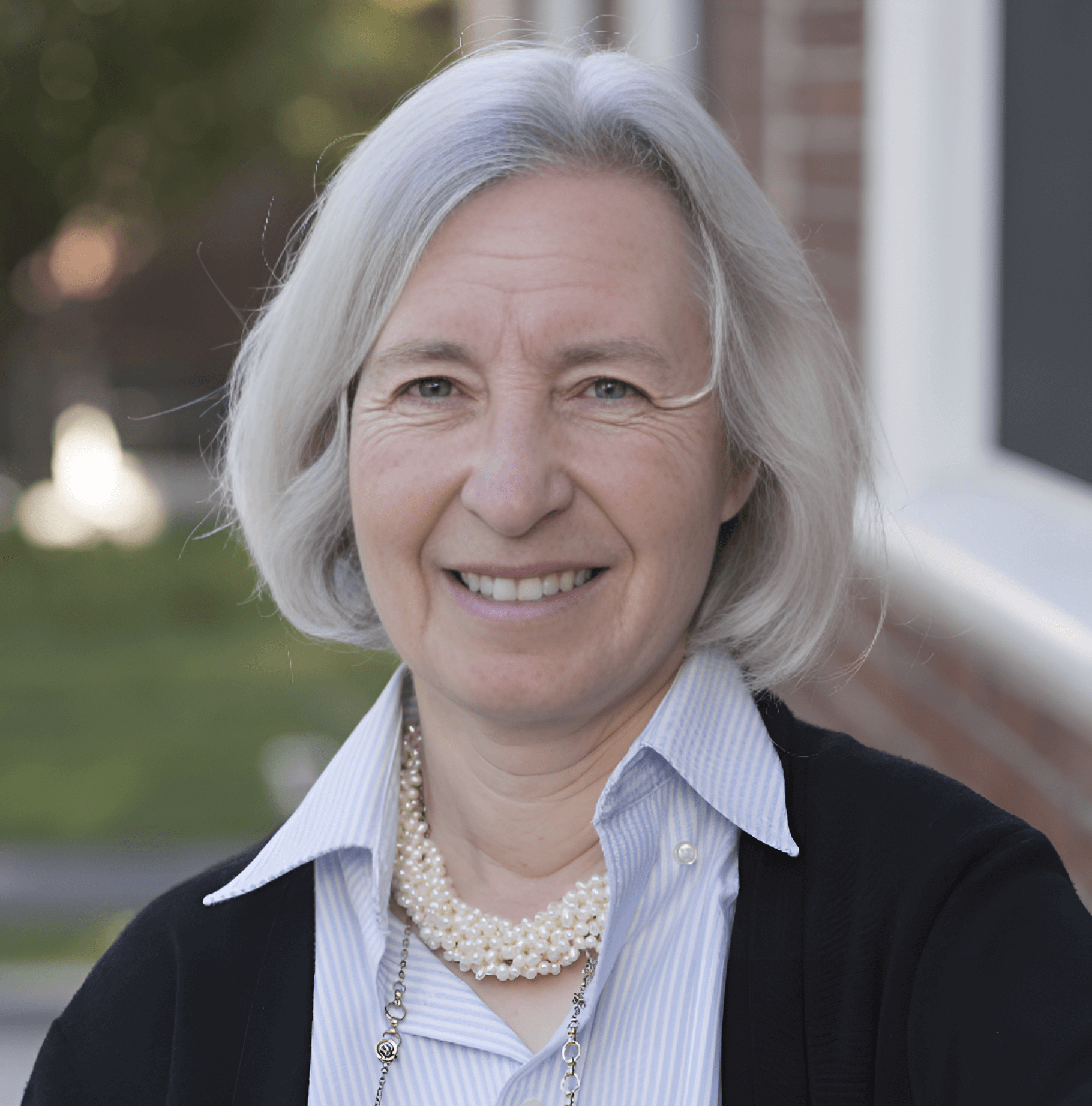
Martha Minow is the 300th Anniversary Professor at Harvard Law School, and a former board member of the Legal Services Corporation. An expert in human rights and advocacy for members of racial and religious minorities and for women, children, and persons with disabilities, she also writes and teaches about digital communications, democracy, privatization, military justice, and ethnic and religious conflict.
She is currently the co-chair of the access to justice project of the American Academy of Arts and Sciences and co-chair of the advisory board to Massachusetts Institute of Technology’s Schwartzman College of Computing. Previously, she has served on the Center for Strategic and International Studies Commission on Countering Violent Extremism and on the Independent International Commission Kosovo. She helped to launch Imagine Co-existence, a program of the U.N. High Commissioner for Refugees, to promote peaceful development in post-conflict societies. Her five-year partnership with the federal Department of Education and the Center for Applied Special Technology worked to increase access to the curriculum for students with disabilities and resulted in both legislative initiatives and a voluntary national standard opening access to curricular materials for individuals with disabilities.
Her honors include the Sargent Shriver Equal Justice Award (2016); the Joseph B. and Toby Gittler Prize, Brandeis University (2016); nine honorary degrees (in law, education, and humane letters) from schools in three countries; the Gold Medal for Outstanding Contribution to Public Discourse, awarded by the College Historical Society of Trinity College, Dublin, in recognition of efforts to promote discourse and intellectualism on a world stage; the Holocaust Center Award; and the Sacks-Freund Teaching Award, awarded by the Harvard Law School graduating class.
She serves on the boards of the Advantage Testing Foundation, the Campaign Legal Center, the Carnegie Corporation, the MacArthur Foundation, the Russell Sage Foundation, the SCE Foundation, and public media GBH; the Council for the American Bar Association Center for Innovation. Minow served as the inaugural chair of the Deans Steering Committee of the Association of American Law Schools and as a member of the American Bar Association Diversity and Inclusion 360 Commission. She previously chaired the board of directors for the Revson Foundation (New York) and served on the boards of the Legal Services Corporation, the bi-partisan, government-sponsored organization that provides civil legal assistance to low-income Americans; the American Bar Foundation; the CBS Corporation; the Bazelon Center for Mental Health Law; the Covenant Foundation; the Iranian Human Rights Documentation Center; and Facing History and Ourselves, where she chaired the Scholars’ Board. A fellow of the American Academy of Arts & Sciences since 1992, Minow has also been a senior fellow of Harvard’s Society of Fellows, a member of Harvard University Press Board of Syndics, a senior fellow and acting director of what is now Harvard’s Safra Foundation Center on Ethics, a fellow of the American Bar Foundation and a Fellow of the American Philosophical Society. She has delivered more than 70 named or endowed lectures and keynote addresses, including the 2016 George W. Gay Lecture at Harvard Medical School’s Center for Bioethics and the 2017 Alexander Meickeljohn Lecture on media at the First Amendment at Brown University.
Minow served as Dean of Harvard Law School between 2009 and 2017 and as the inaugural Morgan and Helen Chu Dean and Professor. She co-chaired the Law School’s curricular reform committee from 2003 to 2006, an effort that led to innovation in the first-year curriculum as well as new programs of study for second- and third-year J.D. students. As dean, she strengthened public interest and clinical programs; diversity among faculty, staff, and students; interdisciplinary studies; and financial stability for the School.
After completing her undergraduate studies at the University of Michigan, Minow received a master’s degree in education from Harvard and a law degree from Yale. She clerked for Judge David Bazelon of the United States Court of Appeals for the D.C. Circuit and then for Justice Thurgood Marshall of the Supreme Court of the United States. She joined the Harvard Law faculty as an assistant professor in 1981, was promoted to professor in 1986, was named the William Henry Bloomberg Professor of Law in 2003, and became the Jeremiah Smith Jr., Professor of Law in 2005. During 2017-2018, after her service as Dean, Minow held the Carter Chair in General Jurisprudence, and in 2018, she became the 300th Anniversary University Professor at Harvard University.
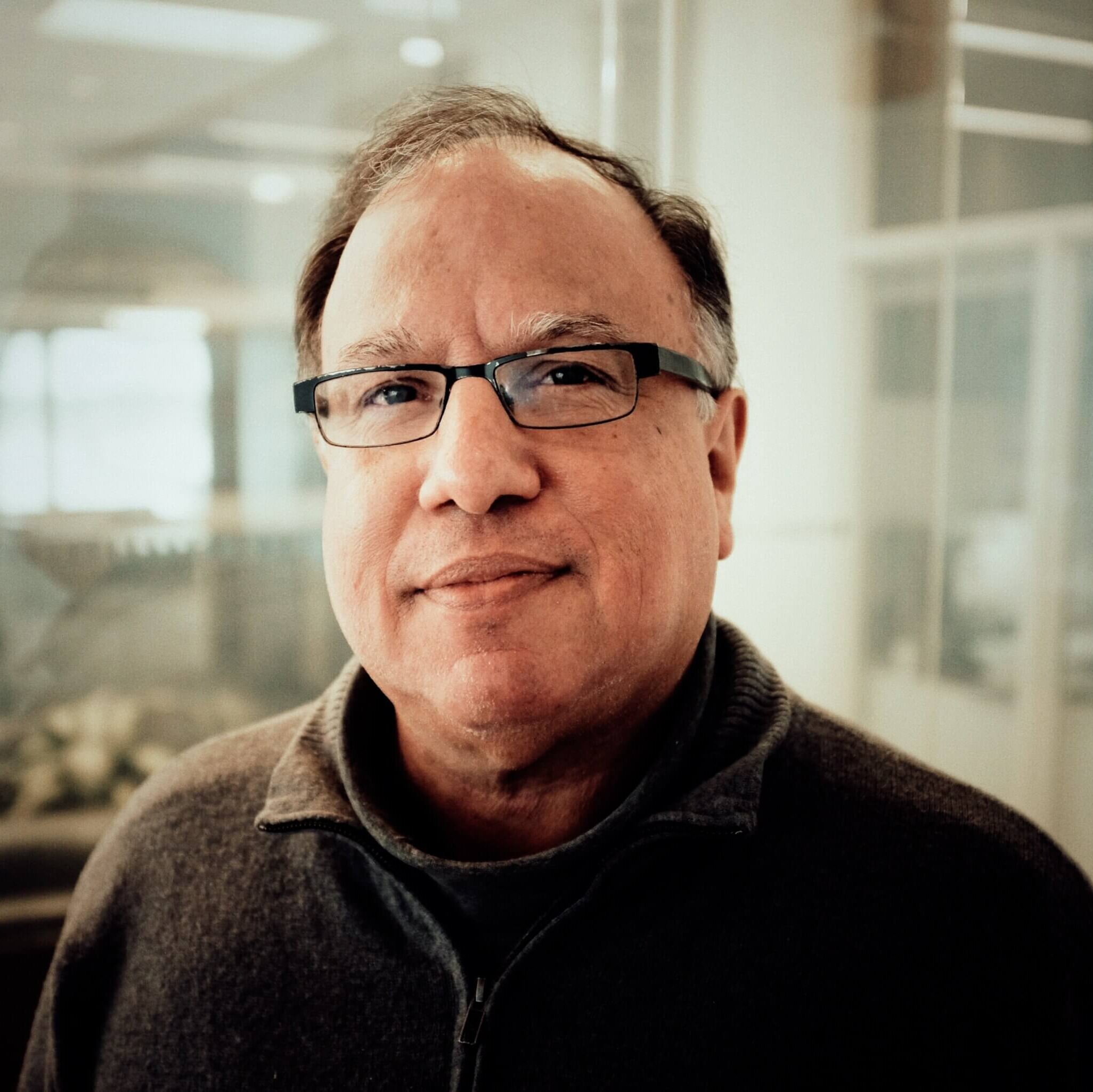
Daniel B. Rodriguez is the Harold Washington Professor at Northwestern Pritzker School of Law and served as dean from 2012 through 2018. Before joining Northwestern Pritzker Law, Rodriguez served as Minerva House Drysdale Regents Chair in Law at the University of Texas-Austin; as a Research Fellow at Rice University’s Baker Institute for Public Policy; as Dean and Warren Distinguished Professor of Law at the University of San Diego School of Law; and as a Professor of Law at University of California, Berkeley School of Law. In addition, he has been a visiting professor at the law schools at Harvard, Stanford, Columbia, USC, Illinois, Virginia, and at the Free University of Amsterdam, The Netherlands. Rodriguez received his law degree, with honors, from Harvard Law and his undergraduate degree from California State University of Long Beach.
Rodriguez’s principal academic work is in the areas of administrative law, local government law, statutory interpretation, and state constitutional law. He also has a special interest in the law-business-technology interface and its impact on the future of legal education. In the past few years, he has given several endowed lectures including the Jefferson Memorial Lecture at University of California, Berkeley. Rodriguez was the 2014 President of the Association of American Law Schools (AALS) and is currently serving as a council member of the American Law Institute and a member of the Board of Directors of the American Bar Foundation.
Host
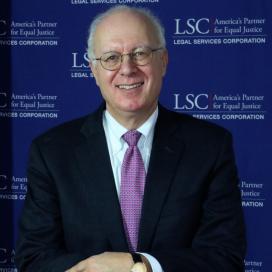
Ronald S. Flagg was appointed President of the Legal Services Corporation effective February 20, 2020, and previously served as Vice President for Legal Affairs and General Counsel since 2013. He previously practiced commercial and administrative litigation at Sidley Austin LLP for 31 years, 27 years as a partner. He chaired the firm’s Committee on Pro Bono and Public Interest Law for more than a decade.
Flagg served as president of the District of Columbia Bar in 2010-2011 and currently serves as Chair of the Bar’s Pro Bono Task Force. He presently also chairs the board of the National Veterans Legal Services Program. He has also served as Chair of the District of Columbia Bar Pro Bono Committee, Chair of the Board of the AARP Legal Counsel for the Elderly, as a member of the American Bar Association’s House of Delegates, on LSC’s Pro Bono Task Force, and as a member of the Board of the Washington Lawyers’ Committee for Civil Rights and Urban Affairs, the Board of the District of Columbia Access to Justice Foundation, and the District of Columbia Judicial Nomination Commission.
Flagg graduated with honors from the University of Chicago and cum laude from Harvard Law School. He began his career as a law clerk to Judge Myron L. Gordon, U.S. District Court for the Eastern District of Wisconsin and as attorney-advisor in the United States Department of Justice, Office of Intelligence Policy.
